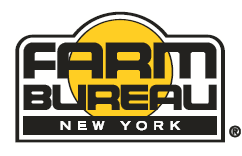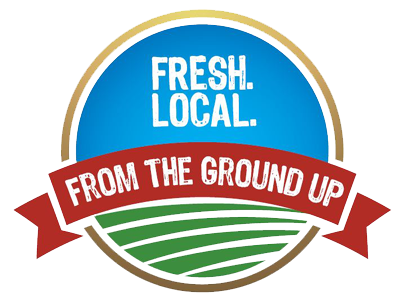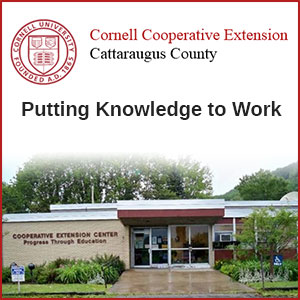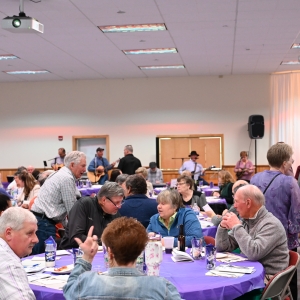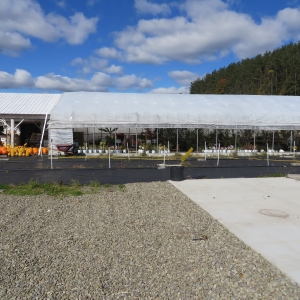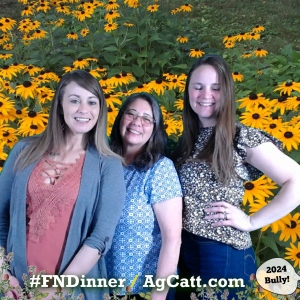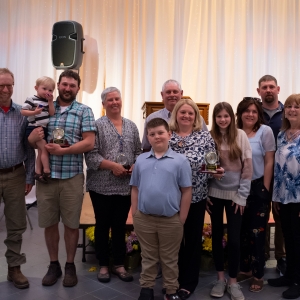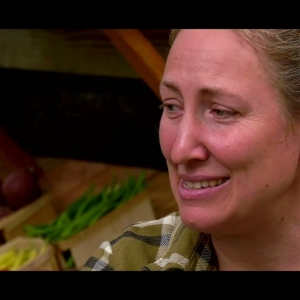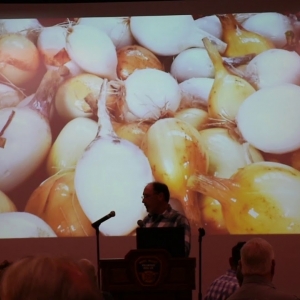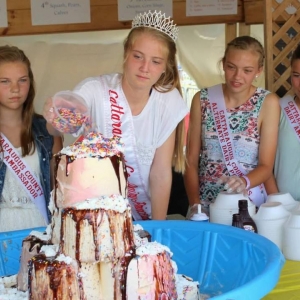Other Ag News:
(Washington, D.C., June 6, 2025) – U.S. Secretary of Agriculture Brooke L. Rollins concluded her trade delegation visit to Rome, Italy. Secretary Rollins reinforced the Trump Administration’s expectations for improved agricultural market access to our ally Italy and encouraged opportunities to expand the reach of the American agricultural industry across the European Union.
A few key highlights from the trade delegation include:
Last month, the US Department of Agriculture (USDA) announced $26.5 million in competitive grant funding available through the Local Agriculture Market Program (LAMP) to develop, coordinate, and expand producer-to-consumer marketing, local and regional food markets, and local food enterprises. This year marks a notably shorter application window, but there are several resources available to support applicants.
The deadline to apply for the FMLFPP and RFSP program is Friday, June 27, at 11:59 p.m. Eastern Time via www.grants.gov.
The Local Agriculture Market Program (LAMP) is an umbrella program that includes the Farmers Market Promotion Program (FMPP), Local Food Promotion Program (LFPP), and Regional Food Systems Partnership (RFSP) program. LAMP was established in the 2018 Farm Bill to streamline program administration for these three programs and the Value-Added Producer Grant program (which is administered by Rural Development), and provide permanent baseline funding status for existing efforts to build and expand local and regional food and agriculture markets.
Patrick James Pasturczak Des Moines, Iowa 2025 Grant CycleFMPP, LFPP, and RFSP are each administered as separate programs by USDA’s Agricultural Marketing Service (AMS) and include three separate Request for Applications (RFA). Each program has funding available for a variety of project types, with a total of $26.5 million available for all three projects.
The following table provides an overview of project types, award sizes, and funding available for each program.
Farmers Market Promotion Program ($11M available) Project TypeMinimum AwardMaximum AwardCapacity Building$50,000$250,000Community Development Training and Technical Assistance$100,000$500,000Turnkey: Recruitment and Training$50,000$100,000Turnkey: Marketing and Promotion $50,0000$100,000 Local Food Promotion Program ($11M available) Project TypeMinimum AwardMaximum AwardPlanning$25,000$100,000Implementation$100,000$500,000Turnkey: Recruitment and Training$50,000$100,000Turnkey: Marketing and Promotion $50,0000$100,000 Regional Food System Partnership Program ($4.5M available) Project TypeMinimum AwardMaximum AwardPlanning & Design$100,000$250,000Implementation$250,000$1,000,000 Notable Changes to 2025 RFAsRemoval of Project Prioritization Language
In each Request for Applications (RFAs), AMS outlines “2025 Highlights and Changes.” Throughout FMPP, LFPP, and RFSP RFAs, AMS has removed language that previously encouraged applicants to propose projects that benefit farmers who are not often represented in other USDA programs, such as small operations, historically underserved, beginning, or veteran farmers and ranchers. They also removed mention of this subset of producers from the review criteria that are provided to applicants for the technical review.
Resources for Prospective ApplicantsUSDA AMS developed a variety of new, helpful tools for potential applicants on their support page. These include:
- A decision tree to decide which of the three programs is right for you;
- Brief overviews of each program’s RFA;
- More detailed guides for each RFA; and
- Checklists and guides for how to write a project narrative, develop your budget, and more.
Check out the full resource on their applicant support page.
AMS is hosting webinars and office hours for prospective applicants to FMLFPP and RFSP. They also provide easily accessible information about grant eligibility, the application process, previously awarded projects, and frequently asked questions on each individual program website. To learn more, visit the individual program webpage:
- FMPP webpage,
- LFPP webpage, or the
- RFSP webpage.
Every year, USDA seeks members of the public to serve on its grant peer review panels. Peer review panels help USDA review grant applications and recommend which projects should receive funding. Grant reviewers, typically people with academic, non-profit, and/or on-the-ground agriculture-related experience, help to ensure that the projects funded advance the goals of the program.
If your organization is not planning to apply or if you are interested in being part of this process and bringing your sustainable agriculture knowledge to the reviewers’ table, please consider volunteering for a FMLFPP or RFSP peer review panel. Reviewers receive a small stipend for their work. Learn more about the AMS peer reviewer application process here or sign up here.
The post Apply Today: USDA LAMP Funding Window Is Open appeared first on National Sustainable Agriculture Coalition.
FOR IMMEDIATE RELEASE
Contact: Laura Zaks
National Sustainable Agriculture Coalition
press@sustainableagriculture.net
Comment: NSAC Responds to House Subcommittee’s FY 2026 Agriculture Appropriations BillWashington, DC, June 4, 2025 – The National Sustainable Agriculture Coalition (NSAC) issued the following comment, attributable to Mike Lavender, NSAC Policy Director, in response to the Fiscal Year 2026 Agriculture, Rural Development, Food and Drug Administration, and Related Agencies Appropriations Bill, released today by the House Appropriations Committee.
“The National Sustainable Agriculture Coalition (NSAC) is disappointed to see that the House fiscal year (FY) 2026 Agriculture, Rural Development, Food and Drug Administration, and Related Agencies Appropriations bill would undercut farmers and rural communities. Initial details reveal a bill that would slash technical assistance, value-added market opportunities, and critical research, while simultaneously undermining fair competition. Framed as fiscal responsibility, these cuts to relatively small yet essential programs for farmers and their communities ring particularly hollow against the backdrop of a House-passed reconciliation bill that would balloon the federal deficit by more than $2.4 trillion.”
“We look forward to continuing to work with Appropriations and Congressional leaders to develop a final FY2026 Agriculture Appropriations bill that invests in a bright future for all of American agriculture.”
The full text of the House FY2026 Appropriations bill can be seen here.
###
About the National Sustainable Agriculture Coalition (NSAC)The National Sustainable Agriculture Coalition is a grassroots alliance that advocates for federal policy reform supporting the long-term social, economic, and environmental sustainability of agriculture, natural resources, and rural communities. Learn more and get involved at: https://sustainableagriculture.net
The post Comment: NSAC Responds to House Subcommittee’s FY 2026 Agriculture Appropriations Bill appeared first on National Sustainable Agriculture Coalition.
On May 22, 2025, the House of Representatives approved its budget reconciliation legislation, the One Big Beautiful Bill Act (OBBB, HR 1), by a vote of 215-214-1. Just a week earlier, on May 15, the House Committee on Agriculture approved, by a party line vote of 29-25, components of OBBB that fall within its jurisdiction. OBBB’s passage out of the full House marks the culmination of a monthslong process, and kickstarts Senate consideration of the bill.
The budget reconciliation process, an optional procedure that can alter spending, revenues, and the federal debt limit, was first established in the late 1970s and has been used dozens of times by both political parties since 1980. Reconciliation has primarily been used to cut federal spending, with one notable recent exception being 2022’s Inflation Reduction Act. Since the establishment of reconciliation, federal programs within the jurisdiction of the Congressional Agriculture Committees have been consistently targeted for cuts – through budget reconciliation, cuts to farm bill programs were made in 1982, 1987, 1989, 1990, 1993, 1996, and 2006. However, the scope of reductions in these instances pales in comparison to those included in the House-passed OBBB.
The House Committee on Agriculture resorted to cannibalization – slashing over $294 billion from the Supplemental Nutrition Assistance Program (SNAP) in order to fund nearly $50 billion worth of increased farm subsidies that support only a fraction of American farmers. In doing so, the Committee has directly undermined its ability and responsibility to accomplish a full, bipartisan farm bill that meets the diverse needs of all of American agriculture. While OBBB attempts to sweeten this bad deal by including funding for select programs, on the whole, it effectively abandons fundamental components of the food and farm system, from farm loans to rural development to new market access, and beyond.
The Senate is poised to consider its version of OBBB beginning in June. This blog post summarizes the budget reconciliation process in the House of Representatives and the food and farm components of OBBB. It concludes with a discussion of where reconciliation will go from here and how it may impact the future of the farm bill.
The MarkupThe House Committee on Agriculture’s markup of its components of OBBB began shortly after 7:30 p.m. EDT on Tuesday, May 13, and concluded late in the evening on Wednesday, May 14. In total, the markup spanned more than 11 hours across two days. The first several hours of markup consisted of opening statements from Committee members. Most Democrats used the entirety of their individually allotted time for opening remarks. Most Republicans offered only perfunctory opening remarks, choosing not to use their allotted time – a rarity in Washington, DC, that suggests an unwillingness to speak at length or on camera about OBBB.
Following opening remarks, Committee members proceeded to debate a series of amendments that spanned the entire bill. OBBB’s food agriculture portion consists of two subtitles – Subtitle A and Subtitle B. Subtitle A focuses exclusively on Nutrition, while Subtitle B focuses on all other programs. Historically speaking, committee markups have been a relatively meaningful opportunity to improve the underlying bill by offering amendments. However, in recent years, legislation has arrived at markup more or less fully negotiated, leaving little room for meaningful amendment opportunities. Of the 79 amendments submitted for the House Committee on Agriculture’s OBBB markup – 78 from Democrats and 1 from a Republican – only 25 received a standalone vote. All 25 amendments failed by roll call vote along party lines, with 29 Republicans opposed and 25 Democrats in favor.
You can find all filed amendments here. Below is a list of amendment votes taken during markup pertaining to Subtitle B:
- #5 – Representative Vindman (D-VA-7) amendment to reauthorize the Agriculture Advanced Research and Development Authority (AGARDA) and provide $150 million annually. Failed by roll call vote along party lines, all Republicans (29) opposed – all Democrats (25) in favor.
- # 7 – Representative Pingree (D-ME-1) amendment to require the Secretary of Agriculture to reinstate the Local Food Purchase Assistance Cooperative Agreement (LFPA) Program and the Local Food for Schools Cooperative Agreement (LFS) Program. National Sustainable Agriculture Coalition (NSAC) supported. Failed by roll call vote along party lines, all Republicans (29) opposed – all Democrats (25) in favor.
- #15 Representative McDonald Rivet (D-MI-8) amendment to reinstate the LFS Program for $660 million in fiscal year 2025. NSAC supported. Failed by roll call vote along party lines, all Republicans (29) opposed – all Democrats (25) in favor.
- #24 Representative Riley (D-NY-19) amendment to fund the completion of an online filing portal for reports filed under the Agricultural Foreign Investment Disclosure Act. Failed by roll call vote along party lines, all Republicans (29) opposed – all Democrats (25) in favor.
- #32 Representative Davids (D-KS-3) amendment to prohibit reductions in force at the National Bio and Agro-Defense Facility. Failed by roll call vote along party lines, all Republicans (29) opposed – all Democrats (25) in favor.
- #35 Representative McDonald Rivet (D-MI-8) amendment to provide funding for research facilities maintenance, including $11.5 billion for deferred maintenance at land grant universities. Failed by roll call vote along party lines, all Republicans (29) opposed – all Democrats (25) in favor.
- #36 Representative Salinas (D-OR-6) amendment to require all revenue generated by timber sales to be utilized for hiring and paying wildland firefighters and forest management personnel. Failed by roll call vote along party lines, all Republicans (29) opposed – all Democrats (25) in favor.
- #37 Representative Salinas (D-OR-6) amendment to prohibit the reconciliation bill from providing any funding until the US Forest Service re-hires all qualified personnel who were terminated as part of a mass termination. Failed by roll call vote along party lines, all Republicans (29) opposed – all Democrats (25) in favor.
- #45 Representative Budzinski (D-IL-13) amendment to make investments in the Agricultural Research Service (ARS), the Economic Research Service (ERS), the National Institute of Food and Agriculture (NIFA), and the National Agricultural Statistics Service (NASS). NSAC supported. Failed by roll call vote along party lines, all Republicans (29) opposed – all Democrats (25) in favor.
- #53 Representative Vasquez (D-NM-2) amendment to require the US Department of Agriculture (USDA) to honor and fund all existing contracts and reopen all closed field offices. NSAC supported. Failed by roll call vote along party lines, all Republicans (29) opposed – all Democrats (25) in favor.
- #55 Representative Mannion (D-NY-22) amendment to increase funding for the Specialty Crop Research Initiative (SCRI) to $300 million in FY2026. Failed by roll call vote along party lines, all Republicans (29) opposed – all Democrats (25) in favor.
- #60 Representative Gray (D-CA-13) amendment to require the President to provide Congress and the public with certain information at least 30 days before issuing an executive order related to agriculture, food, and the livelihood of farmers, ranchers, and producers in the United States. Failed by roll call vote along party lines, all Republicans (29) opposed – all Democrats (25) in favor.
- #63 Representative Gray (D-CA-13) amendment to require the Secretary of Agriculture to submit a monthly report that includes five bullet points explaining the actions the Secretary has taken in the preceding week to improve market access for American Farmers. Failed by roll call vote along party lines, all Republicans (29) opposed – all Democrats (25) in favor.
- Vote on the final House Committee on Agriculture passage of its OBBB provisions. NSAC opposed. Approved by roll call vote 29 in favor – 25 in opposition.
While the food and agriculture provisions of OBBB are small compared to a full farm bill, there are nonetheless nearly one hundred pages within the jurisdiction of the House Committee on Agriculture. As always, a key consideration for which provisions make the final cut is how much they reduce the deficit or increase spending. The Congressional Budget Office’s (CBO) full breakdown of the bill can be found here, and an analysis of the food and agriculture provisions is here.
Remarkably, the CBO has indicated that OBBB will increase the deficit by more than $2.4 trillion over 10 years. If enacted, OBBB would be subject to sequestration. According to CBO, the required reduction in spending for OBBB programs other than Medicare would “exceed the estimated amount of resources available to those programs in each year over the 2027–2034 period. If [the Office of Management and Budget] sequestered all of the funding for those programs, the total amounts would be less than the reductions required … .” Essentially, OBBB increases the federal deficit so significantly that the size of the required sequestration would be larger than the programs subject to sequestration, meaning that unless sequestration is waived all together, numerous USDA programs subject to sequestration – from farm bill conservation programs and some of the current and former stranded programs – would be completely wiped out.
Photo credit: Preston Keres, USDA.The following summarizes provisions in Subtitles A and B of OBBB. This summary does not include every provision under the jurisdiction of the House Committee on Agriculture within OBBB.
- Supplemental Nutrition Assistance Program (SNAP)
- OBBB includes a number of provisions that create new restrictions on who can benefit from SNAP, such as changing age ranges for existing work requirements. (Sections 10002, 10003, and 10008). The Center on Budget and Policy Priorities’ assessment estimates that more than 3 million adults and 2 million children will be impacted as a result of the proposed changes.
- While all provisions in Subtitle A restrict access to this essential nutrition benefit in some way, the change that has the potential to affect the most people is a new state matching fund requirement. Historically, 100% of the cost of the food benefit has been paid by the federal government, with states sharing the administrative costs of the program. OBBB not only increases the state’s share of administrative costs (from 50% to 75%), but it also establishes a new state match requirement for the cost of the food benefit. The baseline would include a 5% contribution from every state, with some states paying as much as 25%, depending on their payment error rates (Sections 10006 and 10007).
- These changes will undoubtedly affect millions of individuals, but the full extent of the impact of shifting a significant amount of the burden to the states is less understood. Some states may not be able to afford the entirety of the required match, which could result in additional cuts in benefit offerings. Rural areas stand to be the most affected. Additional analysis is provided by the Center on Budget and Policy Priorities.
- Commodity and Crop Insurance
- OBBB includes many provisions first introduced in last year’s Farm, Food, and National Security Act to substantially raise subsidies for some farm operations; the CBO estimates this new spending will amount to roughly $52 billion over 10 years. It boasts an immediate increase to reference prices for each covered commodity under the Price Loss Coverage (PLC) program by 10 to 20%, in addition to an annual 0.5% adjustment beginning in 2031, up to 115% of the statutory reference price. Agricultural Risk Coverage (ARC) payments will be boosted as well by boosting the revenue guarantee from 86% to 90% of average individual or county revenue, as well as authorizing a higher payment factor. PLC and ARC payments are triggered when commodity prices fall below the reference price or benchmark revenue guarantee, respectively.
- Just 27% of US farm acres are enrolled in ARC and PLC, and only 31% are eligible given their possession of base acres. This means very few farms will benefit from the bill’s most expensive agriculture provisions. One analysis projects that less than 0.3% of farms would be the chief beneficiaries from these costly reference price increases: primarily operations with rice, peanut, and cotton base acres. In exchange, 78 percent of counties stand to see a net reduction in federal nutrition benefits.
- OBBB authorizes enrollment of up to 30 million additional base acres nationwide, roughly the number of farmland acres in Iowa. But that option will almost certainly be most accessible to farms with existing base acres that have acquired new acreage. Farmers growing fruits and vegetables – among them, many small and direct-market farms – are still not eligible. Even if enrolled in base acres, a smaller farm that does grow an eligible commodity, for instance, would see inconsequential payments from ARC or PLC; the usefulness of these programs scales with acreage.
- To exacerbate the spectacle of winners and losers, OBBB eviscerates longstanding payment limits and means tests intended to curb excess taxpayer spending. Existing payment limits place a $125,000 cap on the amount that a farmer – deemed actively engaged in the labor or management of a farm – may receive annually. Loopholes already hinder the effectiveness of the payment limit, which mostly exists on paper, including exempting all family farms – roughly 97% of farms – from the actively engaged requirement per a last-minute “correction” to the 2020 Payment Limitation and Payment Eligibility Final Rule. Nuclear family members as well as cousins, nieces, and nephews are automatically considered to be “actively engaged,” and each may thus receive up to $125,000 annually irrespective of their actual involvement with the farm. OBBB raises the aforementioned $125,000 cap to $155,000, while also authorizing annual adjustments for inflation. Perhaps more consequential, the House extends the exemption to all corporate farms; this is poised to open the door to board members and more absent landowners to receive limitless individual payments for their ties to a single farm.
- Further, under current law, farm operations with an Adjusted Gross Income (AGI) above $900,000 are not eligible for subsidies. Historically, this “means test” stems from a bipartisan consensus that any farm business with a robust profit margin – almost $1 million – does not need to be bailed out by the American taxpayer. Although loopholes exist, such as dividing the farm into multiple smaller entities on paper, the OBBB takes it further, completely exempting farmers who earn 75% or more of their income from farming from the means test with respect to payments from disaster and conservation programs. Incomplete public data makes it impossible to know how many farms this impacts, but 77% of farm household income is derived from off-farm income, and even large commercial farms (with a Gross Farm Income beyond $350,000) receive on average 74% of their income from off-farm sources. Off-farm income is vital to most American farming households to provide benefits such as healthcare, retirement benefits, and additional income. Disaster assistance already primarily benefits the largest farms and flows to states with the most acres planted to commodities; expanding disaster assistance eligibility to the country’s most profitable farms will exacerbate this pattern, leaving even fewer resources available in the future to extend relief to smaller and noninsured farms impacted by natural disasters.
- The application of this AGI waiver to conservation programs is particularly troubling. Coupled with large program budget increases (discussed below) and aggressive reductions in total staff capacity at the Natural Resources Conservation Service (NRCS), this waiver offers a sinister release valve for field staff facing mounting pressure to spend down their state’s annual program budgets. With more dollars and fewer hands on deck at NRCS to address the long line of farms trying to access funds, many states may opt to prioritize working with larger farms in hopes of writing larger contracts, thereby getting more money out the door, faster. Many NSAC members report anecdotally that this philosophy is often present at NRCS state offices, even in times of higher staff capacity. Passing this waiver into law now would allow more of the largest farms in each state to access conservation programs for the first time, increasing the risk that new investments in each program will flow to a small number of the largest, most well resourced producers, rather than to the current backlog of producers that have been waiting to enroll.
- Finally, OBBB includes no meaningful provisions to expand access to crop insurance for a majority of small to mid-sized, multi-crop, or direct marketing farms. The House does authorize an expanded premium discount for beginning farmers, but that provision alone fails to remove the most persistent administrative barriers to enrollment across crop insurance programs – including paperwork and compensation metrics that disincentivize crop insurance agents to write policies for small farms. To similar ends, the House marginally expands coverage levels for catastrophic policies and authorizes expanded premium discounts for the Supplemental Coverage Option, but these changes will not reach the 73.5% of farms with cropland that are not enrolled in the Federal Crop Insurance Program.
- Private insurance companies stand to benefit most from crop insurance provisions in the OBBB. While the Government Accountability Office has found on several occasions that federal payments to Approved Insurance Providers (AIPs) contribute to spending waste or exceed what may be considered a reasonable amount based on market necessities, the House decided to authorize a range of new subsidies for AIPs. These include an additional subsidy equal to 6% of companies’ net book premiums as well as annual inflation adjustments to all contracts covering commodities that were subject to an increase between 2011-2015 – a highly specific provision which appears to exclude Whole-Farm Revenue Protection from the bonus, which only began as a pilot in 2015. Under current law, subsidies for administrative and operative (A&O) expenses to AIPs already amount to almost $4 billion annually –and sometimes surpass annual payments to farmers.
- Conservation
- The House rescinds unobligated Inflation Reduction Act (IRA) funds within the Conservation Stewardship Program (CSP), Environmental Quality Incentives Program (EQIP), Agricultural Conservation Easement Program (ACEP), and Regional Conservation Partnership Program (RCPP).
- The bill increases permanent baseline funding for these same conservation programs. Over the 10 year budget window used to score the bill, each program’s budget authority will be:
- CSP – $13.6 billion, a 36% increase
- EQIP – $31.55 billion, a 55% increase
- ACEP – $6.85 billion, a 26% increase
- RCPP – $4.475 billion, a 49% increase
- Notably, these totals and percentages mark a reprioritization of available funding across these four programs. Previously, the IRA had overinvested in RCPP, creating $2.4 billion in additional budget authority in FY26 alone, a roughly eight-fold increase over RCPP’s farm bill budget of $300 million for that same year. The redistribution of funds proposed in OBBB corrects this, shifting a greater portion of funding into CSP and EQIP, programs that contract directly with farmers and have seen similarly high oversubscription rates in recent years, even with additional IRA funds available. This redistribution is generally positive, though with similarly high oversubscription in both CSP and EQIP, NSAC maintains that a more balanced distribution of funding between CSP and EQIP would better serve producers, particularly the most innovative conservation farmers who have led the way for our nation in building systems of stewardship on their operations.
- Since this package increases permanent baseline authority for these conservation programs, it creates a long-term investment in each program that will last long beyond the 10 year budget window of this reconciliation package. This will ensure tens of billions of extra dollars in conservation funding in the coming decades and any future farm bill, a long overdue investment NSAC has advocated for. It is worth noting that this investment could have been accomplished during recent government funding negotiations or in a fully reauthorized farm bill; reconciliation is not the only path to achieving this investment.
- Finally, OBBB abandons targeted support for practices that help farmers deal with the impacts of climate change and increasingly severe weather. All Climate Smart Agriculture and Forestry (CSAF) practices are popular, classic conservation practices – such as cover crops, rotational grazing, and reduced till – that first and foremost address non-climate resource concerns on farms such as water quality, erosion, soil health, and wildlife habitat. However, CSAF practices also have the added benefit of reducing greenhouse gas (GHG) emissions or sequestering carbon and building agricultural resilience to the impacts of severe weather – something that is not true of all conservation practices that NRCS supports. Making climate targeting a permanent part of conservation programs ensures that the most popular practices that address multiple resource concerns, including climate change, have dedicated funding. These practices generate multiple benefits, ensuring an excellent return on investment, and therefore should be prioritized.
- Research
- OBBB would increase mandatory funding for Scholarships for Students at 1890 Institutions (1890 Scholarships) from $40,000,000 to $60,000,000 to remain available until expended. Of note, this program is considered a stranded program in the farm bill, and has not been issued any new funding since September 2024.
- In addition, this bill significantly increases mandatory funding for the Specialty Crops Research Initiative, scaling up funding from $80,000,000 in FY25 to $175,000,000 in FY26.
- However, OBBB does not increase funding for any of the programs, like the Sustainable Agriculture Research and Education Program (SARE) or the Organic Research and Extension Initiative (OREI), that provide more direct funding for organic and sustainable agriculture research. Nor does it address the many education and training programs – like the Food Safety Outreach Program or the Farming Opportunities Training and Outreach program – which provide critical education and technical assistance for small and mid-sized farms navigating new markets and regulatory requirements. The current demand for sustainable agriculture solutions far outweighs available resources. Increased funding for these programs in a full, bipartisan farm bill would play a critical role in helping farmer-driven research keep pace with the growing challenges related to the state of the rural economy, soil health, and competitiveness of American producers, and helping smaller-scale and next generation farmers access new markets.
- Stranded Programs
- Funding for programs without farm bill baseline (the so-called “orphan” or “stranded” programs) was left out of the American Relief Act, passed in December 2024. These stranded programs have been unable to issue new funding since the farm bill expired at the end of September 2024. However, OBBB provides funding for most of the stranded programs, including:
- $8,000,000 each fiscal year for the National Organic Certification Cost-share Program through 2031.
- $10,000,000 for the Organic Production and Market Data Initiative for fiscal years 2026 through 2031.
- Funding for programs without farm bill baseline (the so-called “orphan” or “stranded” programs) was left out of the American Relief Act, passed in December 2024. These stranded programs have been unable to issue new funding since the farm bill expired at the end of September 2024. However, OBBB provides funding for most of the stranded programs, including:
One other provision in OBBB, Section 10101(n) or Suspension of Permanent Price Support Authority, has broad implications for federal food and farm policy. Historically, most farm bill programs have the same authorization date, which is another way to say that, with a few exceptions, the farm bill legally allows most programs to operate within the same time window. The expiration of that window is what prompts a new farm bill. However, this picture has become murkier in recent years and is exacerbated by the House-approved OBBB.
If the House-passed OBBB becomes law there will effectively be two sets of authorization dates for “farm bill” programs. Some programs will be authorized through 2031, while the rest of the farm bill programs have an authorization that runs through September 30, 2025. The following programs would be authorized through 2031: Conservation Stewardship Program; Environmental Quality Incentives Program; Agricultural Conservation Easement Program; Regional Conservation Partnership Program; commodity support programs including ARC and PLC; Organic Market Data Initiative; National Organic Cost-Share Program; Grassroots Sourcewater Protection Program; Voluntary Public Access and Habitat Incentive Program; Feral Swing Eradication and Control Pilot Program; Urban, Indoor, and Other Emerging Agricultural Production Research Extension and Education Initiative; Biobased Markets Program; and the Bioenergy Program for Advanced Biofuels. Virtually all farm bill programs not named here would expire on September 30, 2025. This leaves two sets of farm bill programs on different reauthorization timelines, likely making it more challenging than ever to extend the farm bill.
Where to from HereThe next step in the budget reconciliation process will take OBBB to the Senate. While the House version serves as a basis for the Senate bill, there are reasons to expect a substantively different approach in the Senate. First and foremost, while the budget resolution required the House Committee on Agriculture to identify at least $230 billion in spending reductions, the Senate Agriculture Committee is only required to identify $1 billion in reductions. Furthermore, some members of the Senate Agriculture Committee have publicly outlined how the Senate version may end up different from the House.
Public reporting has indicated that Senate Agriculture Committee Chair John Boozman (R-AR) has privately encouraged House Committee on Agriculture Chair GT Thompson (R-PA-15) “to only include risk-management policies like updated reference prices and crop insurance” while excluding other programs. Separately, after reviewing the OBBB text, Senator Chuck Grassley (R-IA) suggested that the bill would need a “do-over” in the Senate.
Another important consideration as OBBB moves to the Senate is the impact of the “Byrd rule”. The Byrd rule limits the scope of provisions that can be included in budget reconciliation by disallowing the inclusion of extraneous provisions. Provisions can be considered extraneous if they do not produce a change in spending or are outside the jurisdiction of a relevant Congressional committee. The agriculture-specific portion of OBBB may include multiple provisions that are out of compliance with the Byrd rule, which would ultimately change the scope and nature of the bill itself.
As the Senate begins in earnest its work on budget reconciliation, timing is a key question. Speaker of the House Mike Johnson (R-LA-4) initially committed to passing OBBB through the House by Memorial Day. He has accomplished this goal despite widespread skepticism. The next Republican goal has been to deliver a bill to the President’s desk by July 4, 2025. If they intend to stick to this timeline, roughly 4 weeks remain to pass the bill through the Senate, resolve differences between the Senate and House, and send it to the President’s desk by passing it through both chambers once more. A tall task indeed. In all likelihood, the process to approve budget reconciliation will drag on through the summer, potentially into August.
And the Farm Bill?By dramatically cutting one title of the farm bill to increase funding in another part of the farm bill, OBBB has charted a path toward something unthinkable just a handful of years ago: effectively ending the decades-long farm bill coalition. For close observers of federal food and farm policy, the key question has been what impact this will have on the future of the farm bill reauthorization.
One idea that has emerged is to follow reconciliation with a “skinny” or “lite” farm bill that would theoretically reauthorize all programs abandoned by OBBB. House Agriculture Committee Chair Glenn “GT” Thompson (R-PA-15) has indicated that he has bipartisan support to pass a “skinny” farm bill. When asked for her thoughts on a bipartisan “skinny” farm bill by the end of the year, House Agriculture Committee Ranking Member Angie Craig (D-MN-2) said, “Are [Republicans] going to restore the $300 billion they’re taking out of SNAP in the next step? I don’t think so.”
The reality of the situation, however, is that it is just too soon to predict how the farm bill reauthorization could shift from here. So, let’s start with what we know for certain. We know that on October 1, 2025, the authorization for the majority of farm bill programs will expire. If the final reconciliation bill passes without Section 10101(n), Congress will also need to act by December 31, 2025, if not sooner, to prevent a reversion to permanent law that would impact commodity programs. So, at a bare minimum, a farm bill extension is needed by September 30, 2025, if not a more comprehensive bill.
Even if Congressional Republicans manage to send their budget reconciliation bill to the President’s desk by July 4, that leaves just three months – including August, Congress’ recess month – to draft and pass a farm bill by September 30. After a months-long and bruising debate over budget reconciliation, it seems unlikely that Congress would have the capacity to quickly turn around a new farm bill by September 30. It is theoretically possible; however, given the uncertain timeline for the completion of a budget reconciliation bill, it remains unlikely. The Senate’s approach to budget reconciliation and ultimately the final reconciliation bill – assuming one passes – will heavily dictate the future of the farm bill.
The post Examining the House Agriculture Committee’s Reconciliation Bill appeared first on National Sustainable Agriculture Coalition.
(Washington, D.C., June 4, 2025) – U.S. Department of Agriculture Director of Communications Seth W. Christensen today released a statement calling out Congressional Democrats for politicizing disaster aid for farmers in need across the country:
(Washington, D.C., May 31, 2025) – U.S. Secretary of Agriculture Brooke L. Rollins today announced the U.S. Department of Agriculture (USDA) Forest Service is deploying resources to assist the wildfire response currently impacting Saskatchewan, Manitoba, Ontario, and Alberta, Canada. The Canadian Interagency Forest Fire Center raised the wildfire preparedness level to 5 on May 29, 2025, as the country is experiencing very high to extreme wildfire activity.
In anticipation of President Trump’s 100th day in office, a coalition of organizations from across the nation participated in a Week of Action between April 22 and April 29, 2025, to collectively highlight the disruption and attacks the administration has made on our food system and farmers. During the Week of Action, organizations coordinated efforts to call on Congress to step up and shield farmers and food workers from the chaos and uncertainty wrought by the administration. The coalition, including NSAC, has and is continuing to work together to both protect farmers and people from further harm and win positive policy change that will build a better food system for all.
This coalition shares a vision of a world where farmers, workers, and communities sustain a thriving food and farm system that nourishes people, stewards our environment, and builds strong economies. The week featured calls to action to highlight the various aspects of this vision and to take that message to Congress. Each day during this week of action, we responded to a direct threat to our food system from the Executive Branch. Efforts like this provide an opportunity to amplify our message and engage more broadly with partners and supporters.
This blog post provides a synopsis of the week’s actions and gives those who may not have participated in April the opportunity to make their voices heard now. It is still critically important that Members of Congress hear from constituents about these issues, and we hope readers will take action. It only takes a few seconds to click on the links to email your Member of Congress!
In Support of the Agriculture Resilience ActThe week kicked off with the introduction of the Agriculture Resilience Act on Earth Day, April 22. The last few months have seen brazen attacks on climate and environmental stewardship programs despite their clear benefits for farmers and communities.
Not only are farmers on the front lines of volatile weather events, but they are also among the most significant stewards of our nation’s water, soil, and air quality. To ensure our ability to grow food into the future, we need to resource farmers with the knowledge and support to weather any storm. That’s why we support the introduction of the Agriculture Resilience Act – a farmer-centered bill that incentivizes and supports the work family farmers are doing to build soil health, improve water quality, build robust and resilient businesses, and feed our communities.
This bill offers straightforward, incentive-based strategies for giving farmers the freedom to voluntarily improve the long-term health and resilience of their farms, supporting farmer livelihoods. With sufficient support, these strategies can be included in the next farm bill. Lawmakers must listen to farmers and advocate for their needs.
Will you join us in taking action today by asking your member of Congress to support the Agriculture Resilience Act?
The Need to Reinstate Local Food Purchasing ProgramsDid you know that for the last several years, farmers, schools, and food distributors have been working together to serve fresh, local food in schools and food pantries across the nation?
Until just a few weeks ago, the Local Food Purchase Assistance Program (LFPA) and Local Food for Schools Program (LFSP) at the US Department of Agriculture (USDA) were doing just that. Both programs were working to build stronger local supply chains and promote market access for smaller scale and historically underserved farmers and ranchers at the same time. During our week of action, we took the opportunity to make April 23rd a day of action for the reinstatement of the LFPA and LFSP.
On March 7, USDA announced the termination of over $1 billion in previously announced 2025 funding for LFPA and LFS. The loss of these investments will have lasting effects on local food networks. Farmers depend on these contracts, as many of them shifted their businesses to accommodate the new demand, and food banks and local schools will lose out on high quality local produce.
Will you join us and email your legislators to ask them to support making LFPA and LFSCC funding permanent through the Farm Bill?
Disaster Assistance for All FarmersFloods, droughts, and fires are some of the extreme weather events that can have devastating impacts on farms of all sizes. The federal government has established crop insurance, disaster assistance, and commodity programs to create a safety net that farmers can rely on, but small farms, multi-crop farms, and farms that mostly sell to local and regional markets often struggle to overcome bureaucratic hurdles and access these programs. With increasing weather disasters, more farmers are experiencing the effects of climate change, and with fewer resources available to help them cope with the losses.
Last year, Congress authorized $30 billion in disaster relief payments for farmers. Secretary of Agriculture Brooke Rollins directed $10 billion of those funds to the Emergency Commodity Assistance Program, but the implementation plan for the remaining $20 billion remains unclear. Our action for April 24th invited farmers to sign on to a letter delivered to Secretary Rollins to let her know small farmers also needed comprehensive disaster assistance. While the letter has been delivered, we invite concerned citizens or producers to call their Member of Congress to reiterate the need for crop insurance reform! You can also use some of the points for talking points when speaking to your Member of Congress while asking them to hold USDA accountable to the needs of all farmers. Here is a link you can use to find who your Member of Congress is and how to contact them.
Read the Letter to Secretary Rollins
Celebrating and Defending Federal WorkersAs NSAC worked with its members to prepare responses to Executive Orders and funding freezes from the White House that affected farmers and the organizations providing them with technical assistance, we also heard voices of empathy for the federal employees caught in the middle. These are hard working folks who care deeply about fulfilling the mission of their agencies but found themselves with their hands tied, vilified, and in many cases, fired. As the administration continued to gut USDA and attack our food system, farmers, and communities, USDA employees became a primary target of the administration.
Federal workers are the overlooked yet essential workforce that ensures federal programs reach farmers in rural communities across the country. Federal farm and food programs make healthy food more accessible, make farms more resistant to extreme weather events, help mitigate risk, provide emergency financial support, and fund conservation practices that improve farm businesses and our natural resources for years to come.
All of these programs require dedicated civil servants to administer them, folks ready and able to work directly with the farmers who use these programs. NSAC analysis revealed at that time that close to 30% of USDA employees have been or are at risk of being fired. That is 30,000 of the more than 97,000 employees USDA had at the beginning of the Trump Administration’s second term. This massive reduction in capacity will result in delays for all farmers accessing USDA programs, exacerbate administrative bottlenecks, and make USDA resources even harder to deliver across the country.
Our action for Friday, April 25, urged people to contact their members of Congress, demanding they rehire fired staff and fully staff all critical programs, and underscore the importance of the federal workforce.
Will you join us in emailing your member of Congress, asking them to urge Secretary Rollins to stop all the firings of USDA employees and fully staff all local offices?
Calling on Congress to Release Funds and Honor ContractsWe resumed the week of action on Monday, January 28, with a call on Congress to release funds and honor contractual obligations to farmers and organizations impacted by funding freezes. Beginning in January, the administration froze billions of dollars in federal funding for farmers and organizations, despite lawfully signed contracts and court orders directing funding to flow. Farmers with crops in the ground were left without markets, education, and food access programs for farmers and families were cancelled, and thousands of workers were abruptly laid off. While some freezes have been lifted since, the process and approach to freezing funds has been anything but transparent, affecting nearly every segment of food and agriculture. This should not be happening: Congress has abdicated both its responsibility and constitutional power to check the administration’s overreach and disregard for signed and legally executed contracts. They need to step up and demand that USDA honor its contracts and pay farmers and organizations.
Will you join us in demanding Congress release funds and honor contracts?
Young Farmers BriefingThe week of action concluded on April 29, officially marking the President’s 100th day in office, highlighting the real impact his policies have had on farmers with a virtual briefing organized by NSAC member, National Young Farmers Coalition. Members of Congress were invited to hear directly from the farmers impacted by the funding freezes.
This briefing featured farmers who shared:
- How the USDA grant freeze has affected farm operations, conservation projects, land access, and local food systems across the country,
- The firsthand impact of job losses, stalled reimbursements, and canceled contracts, and
- Concerns around the recent termination of USDA staff administering food and agriculture programs.
Of the many attendees, several Hill staffers took advantage of this opportunity to learn how current administrative actions are undermining bipartisan, congressionally authorized programs and destabilizing rural economies. This briefing is available for viewing.
Impact by the Numbers: Your Voice MattersWe were able to gather some numbers to measure the breadth of outreach the week of action was able to accomplish. These numbers are important because they show that there is broad support for Congress to step in and take action, for the funding freezes to stop, and for USDA staff to be rehired. We may not be able to know the true number of people who engaged with their representatives and government as a result of this week of action because some people may have taken action outside of the action portals, and of some people taking action outside of that week, the same way we hope you will take action now.
In sum:
- 457 people urged their members of Congress (MoC) to co-sponsor the Agriculture Resilience Act,
- 540 people called on Secretary of Agriculture Rollins to reinstate the Local Food Purchasing and Local Food for Schools programs,
- 175+ farmers called on USDA to offer more comprehensive disaster assistance for all farms,
- 121 people demanded that Congress and USDA work to immediately rehire staff who had been unfairly terminated,
- 2,085 people demanded that Congress immediately release all funding, honor all contracts, and halt indiscriminate federal staff firings (and I can see through at least one other organization’s action portal that an additional 1,140 people completed this action as well!), and
- 80+ people tuned into Young Farmers’ 100th Day in Office Briefing, with 41 farmers sharing their story with Young Farmers beforehand.
We also tracked the reach our week of action had on social media, where we got tens of thousands of impressions and interactions on different platforms, and more than 100,000 views on Instagram alone! All in all, that is at minimum, 4,423 touchpoints with Members of Congress, pressuring them to stand up and do more for our farmers and community members, and hundreds of thousands of people witnessing our efforts to protect our food system. But those numbers need not stay there. Action is still needed to continue making sure Congress hears from people about how the Executive Orders and actions coming from the White House are affecting rural and urban communities, disrupting our food system, attacking farmers’ livelihoods and the organizations that work with them to assist them in submitting grants applications and enrolling in programs designed to improve our food system and make it fair to all.
While the week of action has technically passed, our demands have not yet been met. It’s important that we keep up sustained pressure and visibility to ensure we are getting Congress’s attention. Take a few moments to email your Member of Congress about the issues that matter to you – it only takes 60 seconds!
The post We Took Action to Defend Our Food System — Now It’s Your Turn appeared first on National Sustainable Agriculture Coalition.
(Washington, D.C., May 30, 2025) – U.S. Secretary of Agriculture Brooke L. Rollins will visit Rome, Italy, on June 2-3. During her visit, Secretary Rollins will reinforce the Administration’s expectations for improved agricultural market access to Italy and the European Union and will encourage the United Nations organizations in Rome to prioritize American interests, reduce costs, and focus on their core mandates.
USDA Invests $200M to Expand Timber Production, Strengthen Rural Economies, Secure American Industry
(Washington, D.C., May 29, 2025) – U.S. Secretary of Agriculture Brooke L. Rollins today announced a bold $200 million investment to implement the U. S. Department of Agriculture (USDA) Forest Service’s National Active Forest Management Strategy (PDF, 24.7 MB), a key initiative to increase timber harvest, improve forest health and productivity, reduce wildfire risk, and support rural prosperity in forest communities.
(Washington, D.C., May 29, 2025) – U.S. Secretary of Agriculture Brooke L. Rollins today announced the release of Congressionally mandated Emergency Livestock Relief Program (ELRP) payments to cover grazing losses due to eligible drought or wildfire events in 2023 and/or 2024. Secretary Rollins committed on May 7 to release these emergency payments by May 30, and today she is delivering on that commitment ahead of schedule.
Pages
Signup for the Ag Newsletter
Get the freshest farm news, events and updates from in and around Cattaraugus County, NY at least once a month! Go signup!
Other ways to stay connected:
Get Involved in Farming
Resources for Starting a Farm in Cattaraugus County
Profile of Cattaraugus County soils
Agriculture Career Exploration
Questions about farming? Find out Who to Call

